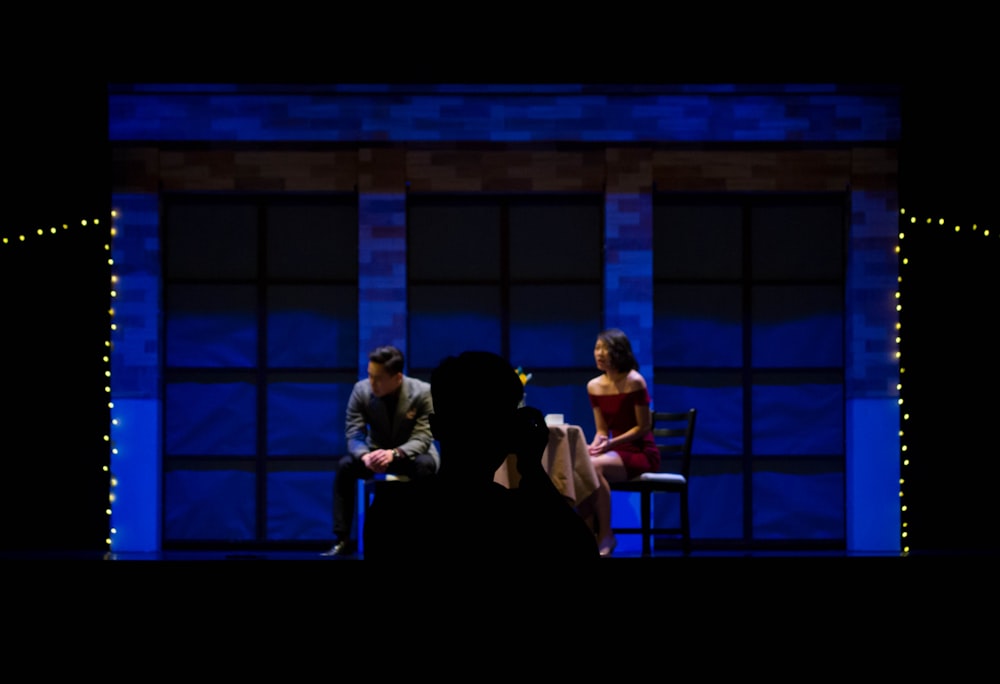
Photo by Jonatan Pie on Unsplash
Max Van Manen, in his 2014 book, Phenomenology of Practice, states, “[phenomenology]….tries to grasp attentively the living sense of the experience before we have lifted it up into cognitive, conceptual, or theoretical determination or clarity.”(Pg. 27) What is being presented here is the idea of the depth of the experience that is lost in the attempt to describe or remember the experience itself. Furthermore, the experience, at the moment, is actually multiple experiences that have their own important qualities that lead to the understanding of thought, and cognitive presence, and how that pertains to what the experience was, not as you simply remembered it.
Max Van Manen works as a professor emeritus at the University of Alberta, after retiring as a Professor from that same university in 2008 (“Max van Manen » Biography,” n.d.). He was born in the Netherlands and received his teaching qualifications before immigrating to Canada. He further received his Masters and PhD degrees at the University of Alberta. Van Manen’s experience in the Netherlands made him ask why there was a, “deep intellectual chasm that existed between the pedagogical approaches to education in the Netherlands and the strong behaviourism and systems analysis of North American education” (“Max van Manen » Biography,” n.d.). Van Manen’s later research was broken into 6 research phases on phenomenological understanding.
Chapter Review
In the second chapter, Meaning and Method, of his book Phenomenology of Practice (2014), Van Manen goes into detail as to what is, and is not, phenomenological methodology, in research. He further talks about how most qualitative and quantitative methods can, and do, have issues with explaining phenomenon. That is to say, “…the phenomenality of human experience cannot be adequately captured with the clarity of analytic concepts, objectifying theme, the purity of philosophical prose, the laws of logic, the abstractions of theory, the codifications of scientific method, and the traditional rationalities of philosophical systems” (Van Manen, 2014, Pg 29). Van Manen further states that,” Some of these schemes [procedural methods of analysis] are periodically proposed in qualitative research literature, but they fail for the simple reason that…, there is no method to human truths” (Pg. 30). Furthermore, Van Manen makes the argument that in trying to ritualized, through experimental structure, the truth of experience leads only to miss grasping the actual experience (truth) one is trying to research. (Van Manen, 2014) In essence, life is reflexive and loses its power of experience when it becomes an objective structure to explain a past moment. Basically, we trivialize, and fail to explain the experience when we put it into packages of words, for communication, and understanding.
Van Manen sums up the chapter at the beginning with following points to help the reader:
- Phenomenological research begins with wonder at what gives itself and how something gives itself. It can only be pursues while surrendering to a state of wonder.
- A phenomenological question explores what is given in moments of prereflective, prepredicative experience—experiences as we live through them.
- Phenomenology aims to grasp the exclusively singular aspects (identity/essence/otherness) of a phenomenon or event.
- Phenomenological reflection and analysis occur primarily in the attitude of the epoche, the reduction, and the vocative-variously understood.
(Van Manen, 2014, Pg. 27)
If this reader were to attempt to summarize what Phenomenology is in practical terms, it would have to be by paraphrasing an example from Van Manen (2014). Imagine a book on a table. It is a book, objectively. In our shared lived experience, it is a book on the table. However, if we had both read that book (lived experience), the phenomena of us reading it would be seen as a different experience for each of us. One may have hated the book, where as another may have been transformed emotionally by it. Objectively, it is still the same book, and our lived experience is that we both read it, but our personal experiences of that book are very different. Therefore, both can say they read the book (language), but the book meant more to one than the other (experience) (Van Manen, 2014). Surprisingly, the book analogy can go further. Imagine that there is a book on the table and one person enters the room. That book is objectively there, however its meaning at that moment is subjective. Perhaps that person sees the book and reminds him/her of; reading it and how that felt, or that the book needs to go back on the shelf, or the book can be used a coaster for a cup of coffee. The use of that book is subjective to the needs and perceptions of that user at that time. (Van Manen, 2014) The question is then raised as to how this would be used in a research setting? This author feels that Van Manen sees Phenomenology as an introspective, and non-reflective look at the lived experience as it relates and feels to the person experiencing it.
Article Connection
The other journal article read for this paper was, A review of the risks associated with children and young peoples social media use and the implications for social work practice by Mark Willoughby (2019). This article is a literature review on the work done thus far, to inform social workers of methods and understanding of youth and their connections to social media. The literature review reveals 8 areas where literature and research combine, thereby providing assistance to social workers in their practice.
If one were to look at research stemming from the questions raised in Willoughby’s article through a phenomenological approach, there are many possibilities. If the focus was, “Social workers must develop their understanding of different social media platforms to enable them to identify risks and maximize the opportunities” (Willoughby, 2014, Pg. 136), one would have to look, for example, at social media as a medium that means different things to the person using it. Furthermore, the phenomenological approach would look, not only at the medium itself, but the way the medium, and the message, affects the individual reader (experience). How does the reader’s past/present mental mindset and experiences aid in shaping that experience? Also, what they experience, at the moment, without reflection, when they are engaged in social media use. I would employ a journal technique that would require the person to document immediately, their response to the message they are receiving. One could pair that with descriptive interviews to look deeply at the moments, with the diary there, to take the person back to the emotions of the moment and therefore limiting their unintentional downplaying of the experienced feelings. This method is also encouraged by Arthur Sloan and Brian Bowe in their 2014 article, Phenomenology and Hermeneutic Phenomenology: the Philosophy, the Methodologies and Using Hermeneutic Phenomenology to Investigate Lecturers ‘ Experiences of Curriculum Design. Sloane and Bowe state that, “[w]hether using descriptive or hermeneutic phenomenology as a methodology, data are often found by using the techniques of personal interviewing, analyzing written accounts such as documents or diaries and/or by making observations of subjects in contexts or environments” (2014, Pg. 12). Therefore, one needs to find out how they felt right then, not ask them what they thought after they could incorporate it into their schema of understanding.
If the social workers were to become savvy to the social media platforms, then they would have a better understanding and ability to meet the client with a shared lived experience mindset and look at a situation and discuss the differing interpretations. As Christine Greenhow and Beth Robelia talk about in their article, Old Communication, New Literacies: Social Network Sites as Social Learning Resources, allowing for, “[u]nderstanding better how such identity develops and how learning occurs in the social and technical contexts young people currently inhabit—e.g., how and with whom expressions are crafted, displayed and utilized, and ideas evolved and distributed through interaction and negotiation—might suggest improvements to instructional designs in formal education” ( 2009, pg. 1136). The idea behind this article is understanding the world and experience of young people is important to understanding them as educators. Moreover, if this is applied in the field of education, would it not, logically, cross over to the field of social work?
In this way of research, the research and the the researcher, are in essence, the researched. Not only does the methodology and structure change with every situation, but every situation is it’s own piece of research. Furthermore, the reader, would be the people directly effected; that being the person and the social worker. The end goal of the research would be micro in scope as it will lend to understanding for both the social worker and client as having shared lived experiences.
Phenomenology is a deep dive into the experience of people at a level far beyond cursory. It takes into account not only what is objective (happening) and goes into the subjective (experience of the person) to increase the understanding of the non-reflective response. As van Manen mentions, though some other qualitative disciplines aim to catch and describe experience, it is through the lens that they capture the experience that forces them into a paradigm locker, that negates the true experience of the person.
References:
Greenhow, C., & Robelia, B. (2009). Old Communication, New Literacies: Social Network Sites as Social Learning Resources. Journal of Computer-Mediated Communication, 14(4), 1130-1161. doi:10.1111/j.1083-6101.2009.01484.x
Max van Manen » Biography. (n.d.). Retrieved from https://www.maxvanmanen.com/biography/
Sloan, A., & Bowe, B. (2013). Phenomenology and hermeneutic phenomenology: the philosophy, the methodologies, and using hermeneutic phenomenology to investigate lecturers’ experiences of curriculum design. Quality & Quantity, 48(3), 1291-1303. doi:10.1007/s11135-013-9835-3
Van Manen, M. (2014). Phenomenology of Practice: Meaning-Giving Methods in Phenomenological Research and Writing. Walnut Creek, CA: Left Coast Press.
Willoughby, M. (2018). A review of the risks associated with children and young people’s social media use and the implications for social work practice. Journal of Social Work Practice, 33(2), 127-140. doi:10.1080/02650533.2018.1460587





